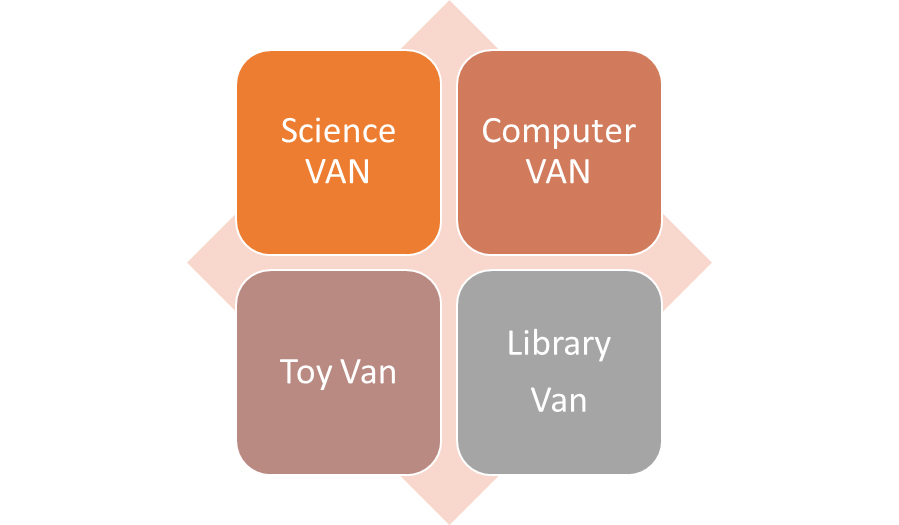Children/Adults
Empowering both children and adults is vital for fostering a healthy, thriving society. This empowerment encompasses education, support, and opportunities for personal and communal growth
School Transformation Programme – STP
School Transformation Programme is a Full School Improvement approach which focuses on enabling children from the underprivileged and marginalised socio-economic strata to get a quality education and optimize their full potential. We partner with State Government and Municipal Corporation Schools to bring quality education.
We believe that a holistic education for all children includes excellence in core academic skills, the development of socio-emotional and 21st century skills and values. Our model works within and beyond classrooms to maximize the potential of the children.
- A fully equipped mobile science lab.
- A book library with academic and recreational books.
- A toy library equipped with games in different categories.
- A fully equipped computer laboratory.
Mobile School
A Right to Education Act passed in 2009 guarantees state schooling for children from 6-14 years in India. But it is fair to say that schools are often overcrowded or inaccessible, or that the quality of teaching is so poor that children simply stop going.
Across the country , more then 65% government schools don’t have access to science practical labs, computers, academic learning libraries and also innovative and creative learning toys and games
Our idea is to have four functional vans to house the following:

These vans will go from school to school and provide a space for practical learning where the entire experimental process may be visualized. The mobility of the vans would mean that they would be able to go from place to place, spreading the joy. Each van will cover 10 to 15 schools depending upon the strength of the schools.

Night/Evening Schools
According to the United Nations children’s fund UNICEF, 20 percent of Indian children aged 6-14 do not attend school. Half of all girls and nearly one-third of boys do not enroll in secondary school. The country also has 12.6 million child labourers, the highest number in the world.
In India, the Right to Education Act (RTE) has been a step forward to mobilize policy and public action to ensure primary education for all. However, there is a need to take this further and explore the plight of those that cannot attend school because they have to work to survive or are, at this point in time, simply too old to benefit from the RTE.
We run centres in the evening that delivers ensured Primary Education to 2160 rural and urban slum children through evening schools including Tsunami affected communities even as they continue to support themselves and their families
Key focus area for the interventions are below
